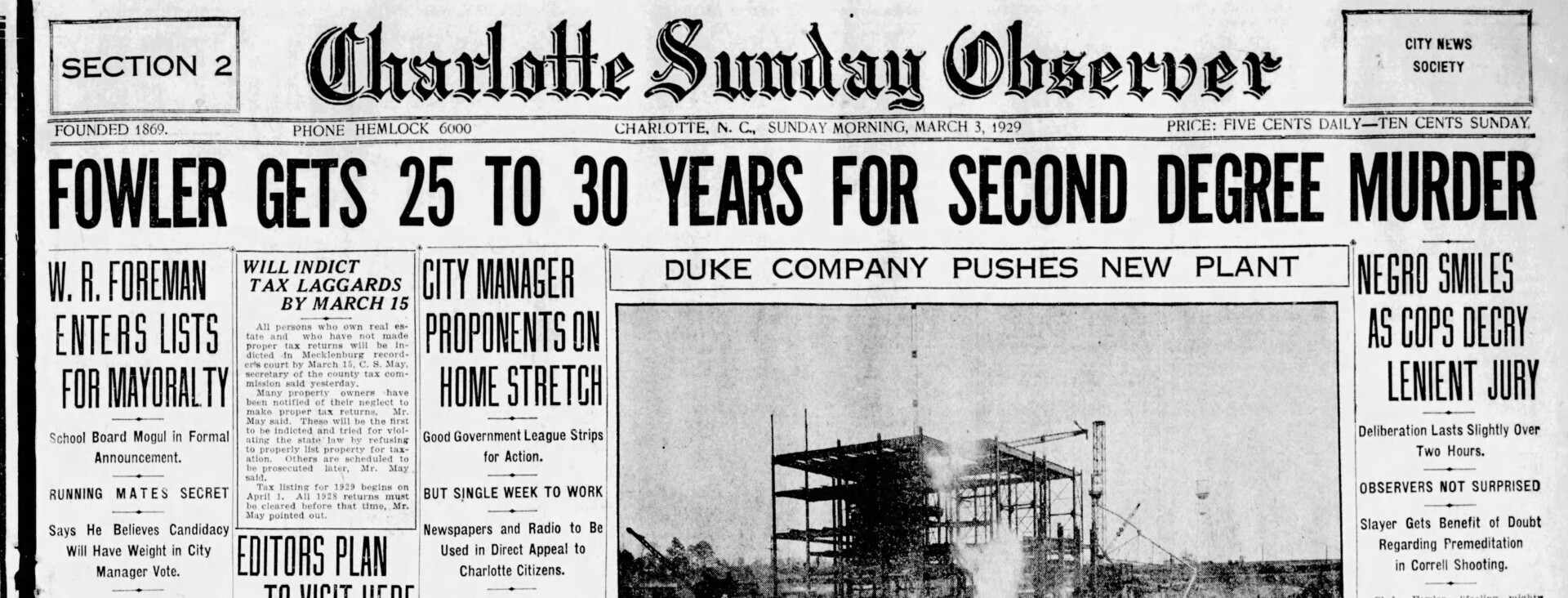Months before McDaniel's death: Significant court decision
In this case, a Black man was convicted of second-degree murder of a white police officer — but not sentenced to death, a headline-making rarity.
Late one night in January 1929, Ed Correll, a detective, had entered the home of Clyde Fowler, a Black man, and was fatally shot by Fowler.
Fowler fled, but was caught after an extensive manhunt by police, helped by what the Observer called “numerous volunteers.” He confirmed he had shot the man.
Police first put Fowler in the county jail to await trial. But, wrote the Observer, when the jailer reported “frequent telephone calls asking the negro’s whereabouts” — though the Associated Press reported he said there was “no reason to fear violence on the negro” — Fowler was secretly moved to a death-row cell at Raleigh’s state penitentiary.
His trial in March brought out “the greatest throng ever to hear a trial in Mecklenburg Court,” according to the Observer.
Fowler’s lawyers, asked to take the case by the NAACP, argued Fowler had defended “the sanctity of his home.” Under their questioning, the Observer reported, Correll’s partner testified that the two officers had never produced a warrant, and others testified that Fowler did not know Correll was a police officer.
When a prosecutor tried to enter evidence connected to an alleged robbery, Judge A.M. Stack refused to allow it. When that prosecutor complained “It will be impossible to give this town justice if you rule it out,” the judge replied: “This town is not on trial.”
The Observer reported Black people watching the proceedings were “much amused” by that remark.
The jury convicted Fowler, but chose the second-degree charge. Instead of the electric chair, Fowler was sentenced to 25 years in state prison. The Observer’s banner headline:

The Charlotte NAACP and Black residents celebrated the verdict, reported the Black-run Norfolk Journal and Guide, quoting an unnamed Charlotte citizen (Charlotte historian Dr. Willie Griffin has surmised it was journalist Trezzvant Anderson) who wrote: “The trial without question will have a tremendous effect” on Black people in the South: “White policemen were told publicly to cease rushing into Negro homes without giving warning.” The writer also pointed out: “We have a few honorable judges and brave lawyers” and that there are some Black people in the South “who have ‘guts’ enough to fight for a brother even if he is a gambler of the lowest class.”

— HS
Learn more about racial injustice, and what happened to Joe McNeely and Willie McDaniel here in Charlotte-Mecklenburg, by exploring the rest of this website and EJI’s resources


